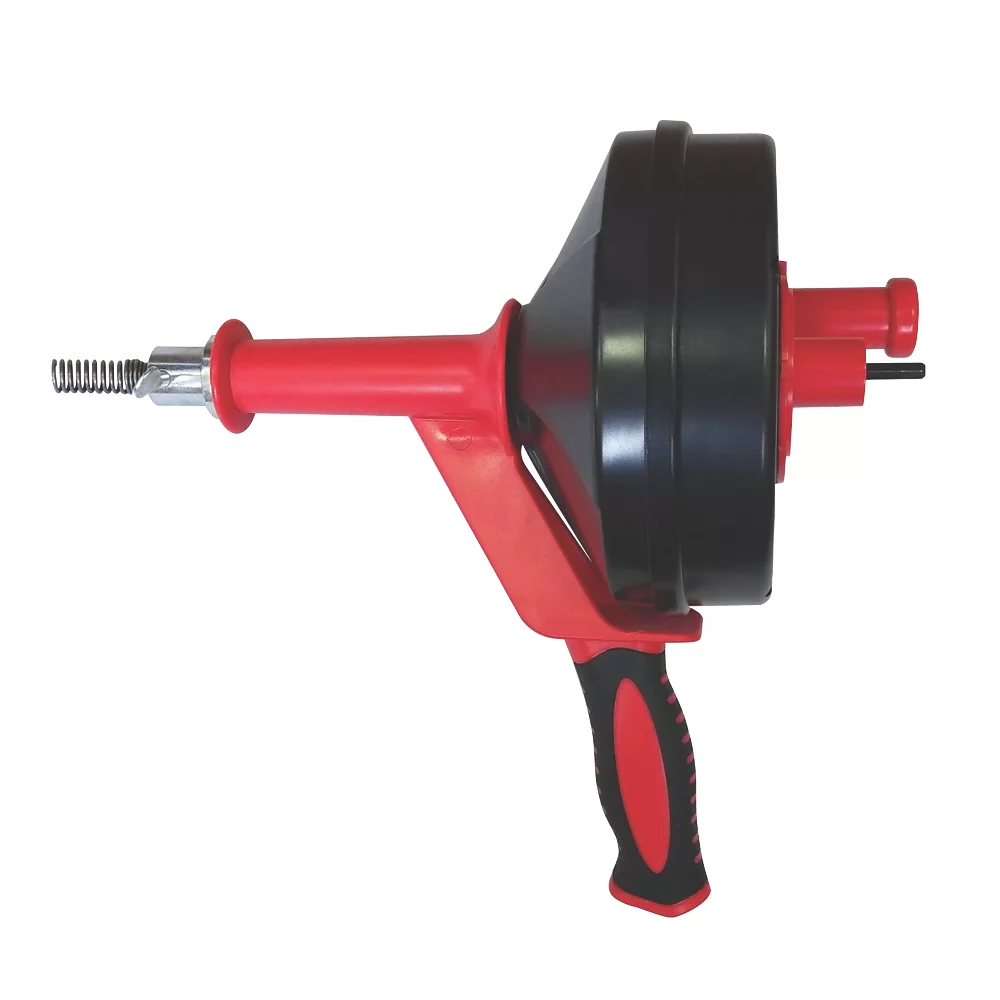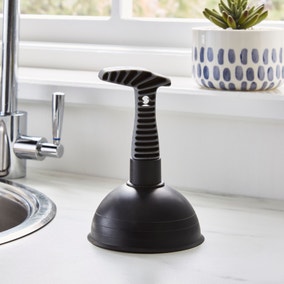How to fix smelly drains – keep the odours away once and for all
Sanitise stinky drains for fresh smelling results
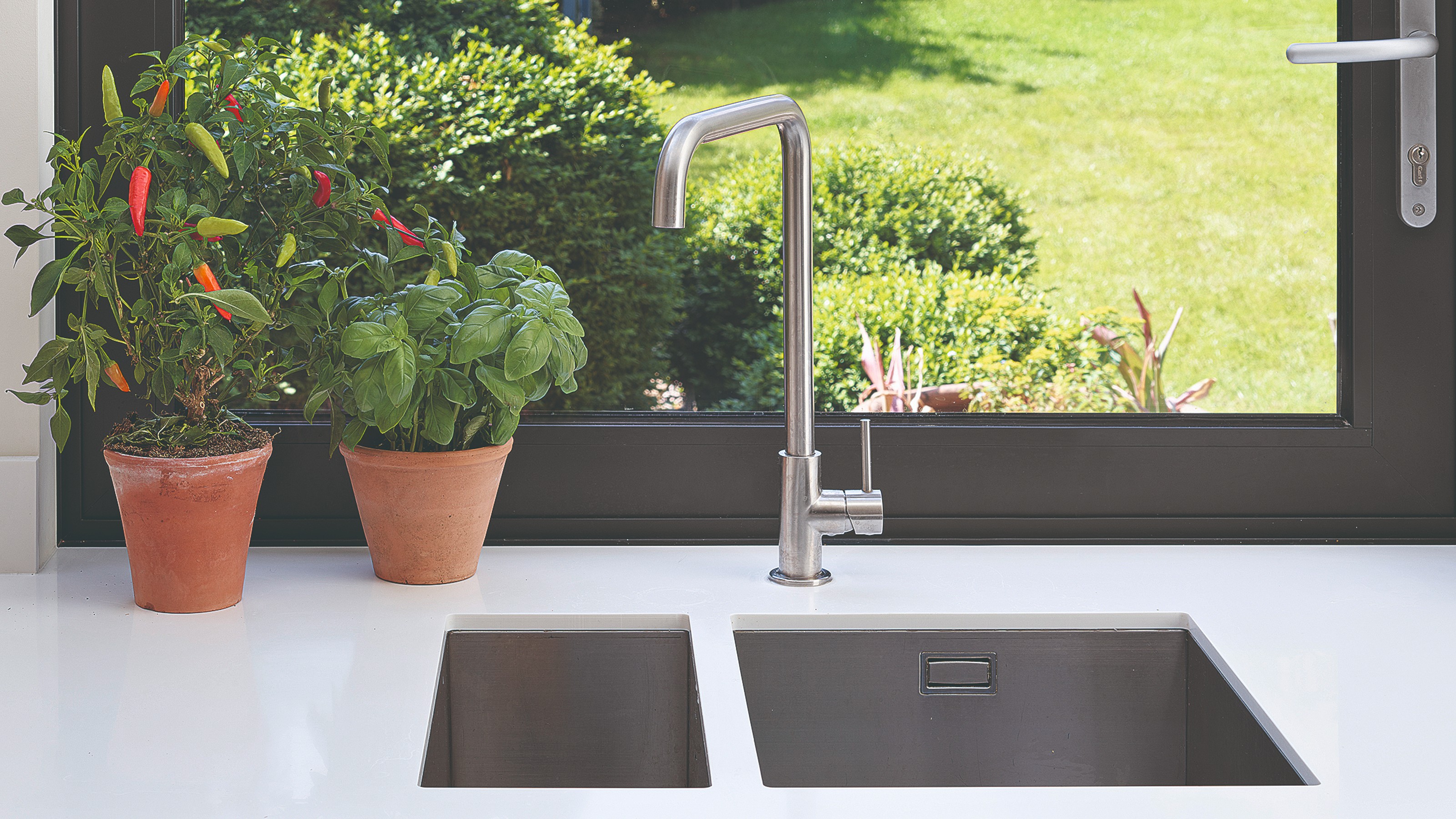
Given how much liquid and soft food particles go down a kitchen sink every day it’s understandable that drain pipes soon become laced and clogged with debris that then sits, festers and then releases foul and unpleasant smells.
Left untreated, those bad odours soon waft up through the sink plug hole and linger ruining even the most sparkling clean kitchen. So, to keep your kitchen smelling fresh as well as looking clean, it’s wise to include a drain rinse in your kitchen cleaning routine regularly.
Knowing how to fix smelly drains can freshen up stale kitchen odours in as little as fifteen minutes and is a commonly missed area of kitchens people forget to clean. We spoke to cleaning experts who revealed the most effective way to fix smelly drains before the situation gets worse and you need to know how to unblock a sink.
How to fix smelly drains
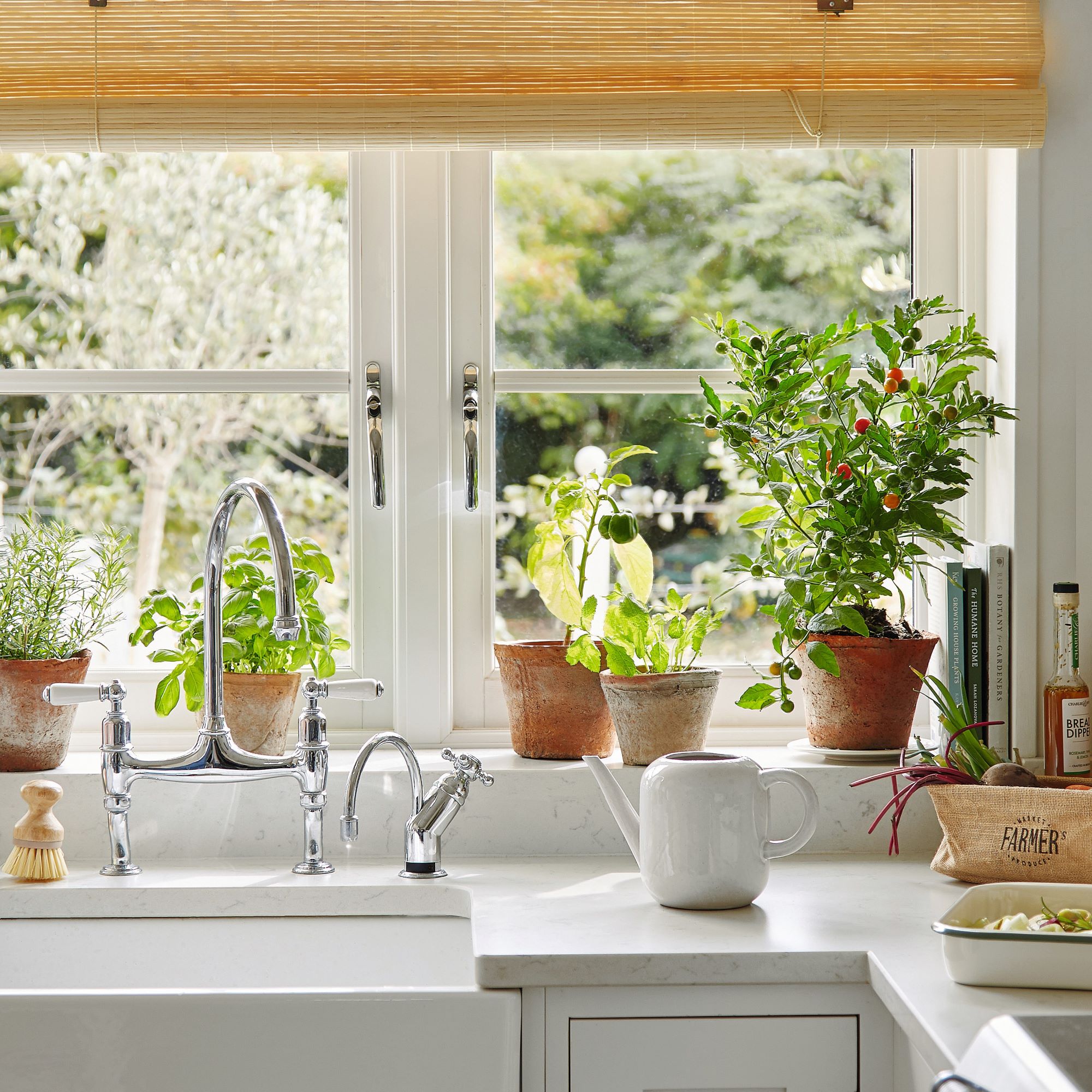
The best way to keep smelly drains at bay is to keep on top of the situation by cleaning them regularly.
'The main thing that you need to do in order to effectively fix smelly drains, is to determine the underlying cause that's causing the smelly drains in the first place. You can always cover over your smelly drains with scented cleaning products, but this won't eliminate the smell and it'll keep coming back time and time again', explains Jess Thomas, drainage expert at Drainage Central.
There are various methods to choose from such as chemical solutions bought from supermarkets and hardware stores, well-known natural ingredients from your kitchen cupboard and clever gadgets. Take a look at the below odour-neutralising methods to see which is best for you.
Start with baking soda and vinegar
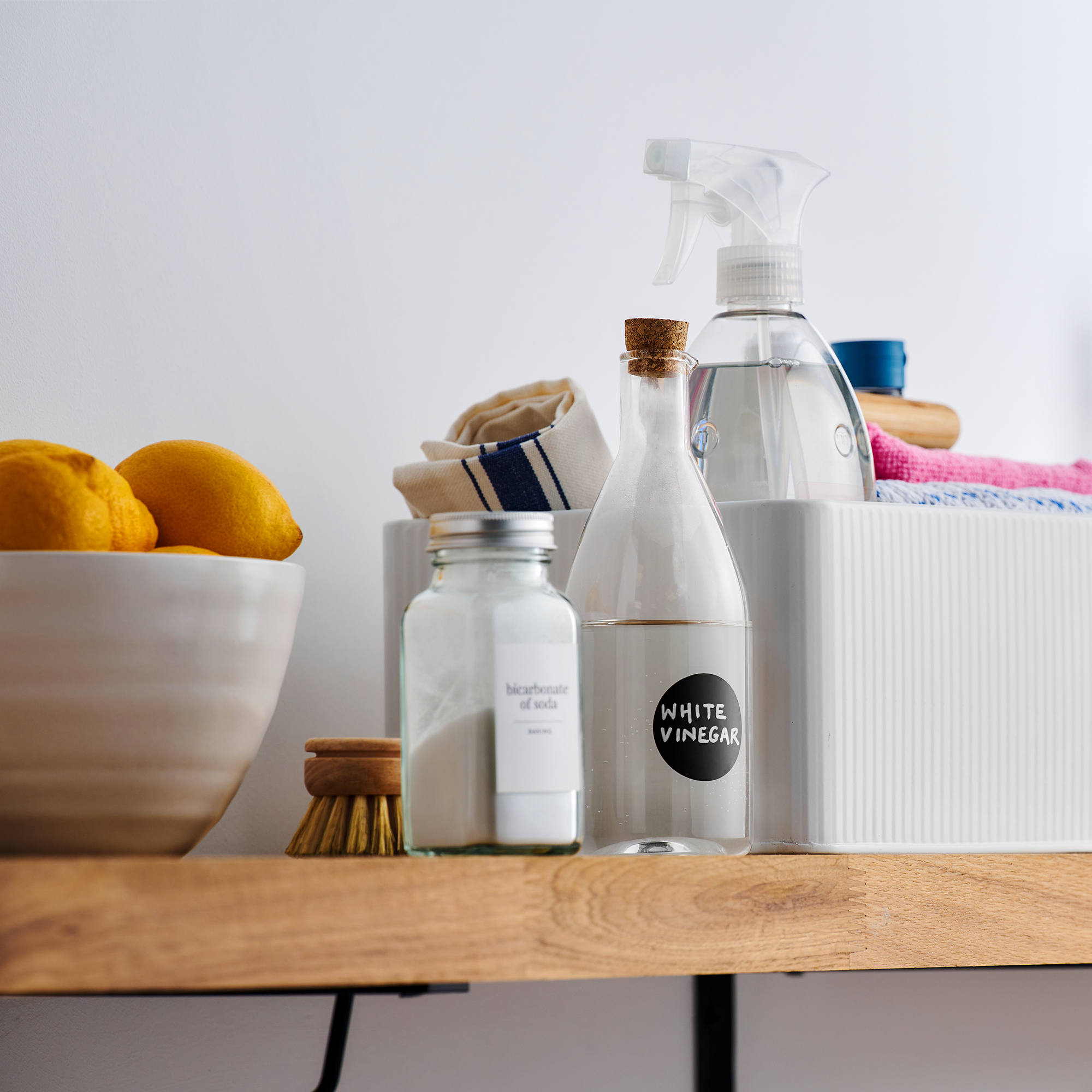
The cleaning with vinegar possibilities are endless, not to mention cost-effective too, so this baking soda and vinegar method for fixing smelly drains is at the top of our list.
'Smelly drains can be cured and kept fresh by the unique and effective method of baking soda combined with white vinegar and some essential oil,' says Jess Farinha, professional cleaner, organiser, and founder of London House Cleaners.
'Firstly, take half a cup of baking soda and pour it down the drain. Followed by a cup of white vinegar afterwards, since this solution will cause a natural reaction of fizzing that breaks down grime, bacteria, and buildup causing odours. Allow the mix to sit for about 15 minutes, then flush with boiling water to clear out the debris. This will not only rid your drains of odours but also clean your pipes.'
When we asked other experts how to fix smelly drains naturally. Many offered the above advice but with varying leave times. So, we suggest leaving the solution to work its magic between fifteen minutes and one hour.
'For a smelly plug hole, you can also pour half a cup of baking soda down followed by a cup of vinegar. Let the solution foam up, then leave for an hour before flushing with warm water,' confirm experts at method.
Try salt and citrus peel
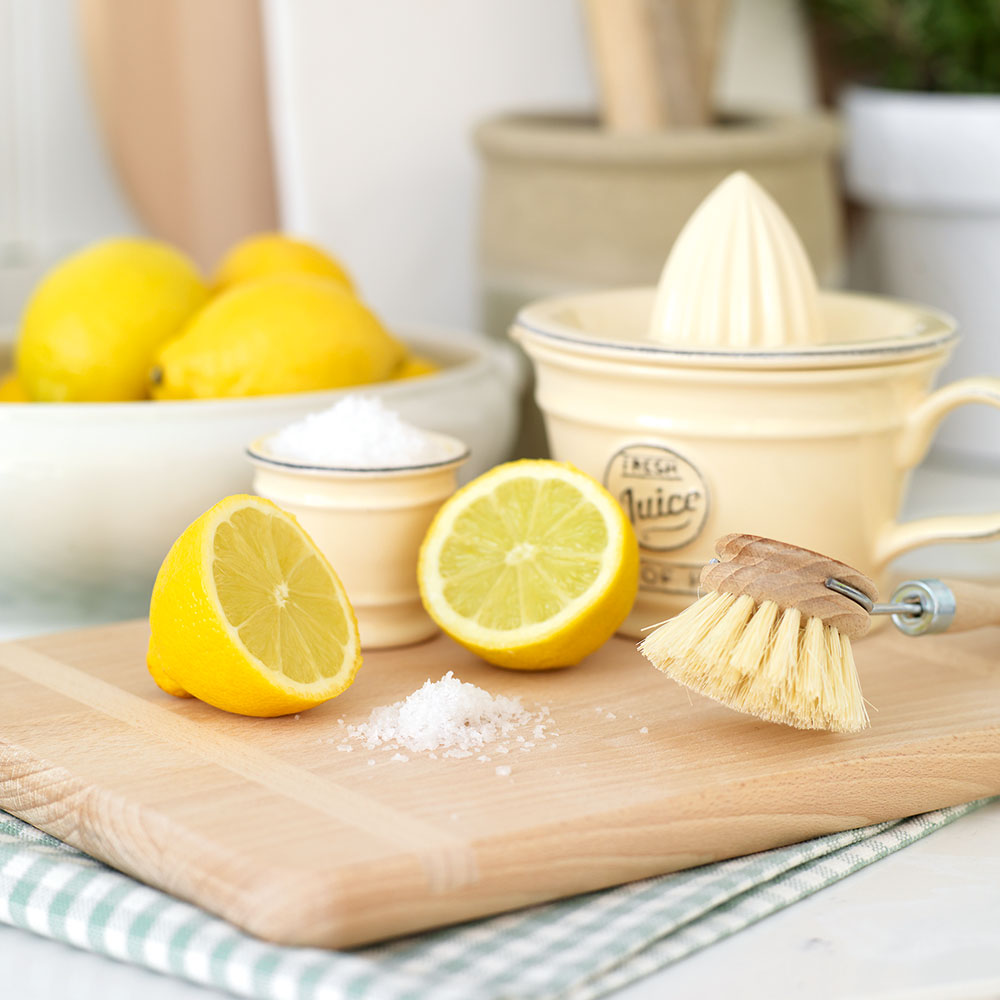
As well as the baking soda and vinegar method, orange or lemon peel as well as household salt can be highly effective when fixing smelly drains, according to one home improvement specialist.
'By placing thinly sliced peels directly into the drain and running hot water, the natural oils help to break down grease while leaving a fresh, subtle fragrance behind, says Brian Toward, home improvement specialist and CEO of bathroom retail company Wholesale Domestic.
'Also, regularly pouring a cup of warm salt solution down the drain can keep odours at bay. Salt acts as a gentle abrasive, dislodging any build-up, while also being an eco-friendly way to combat bacteria growth.'
Invest in a plunger or drain snake
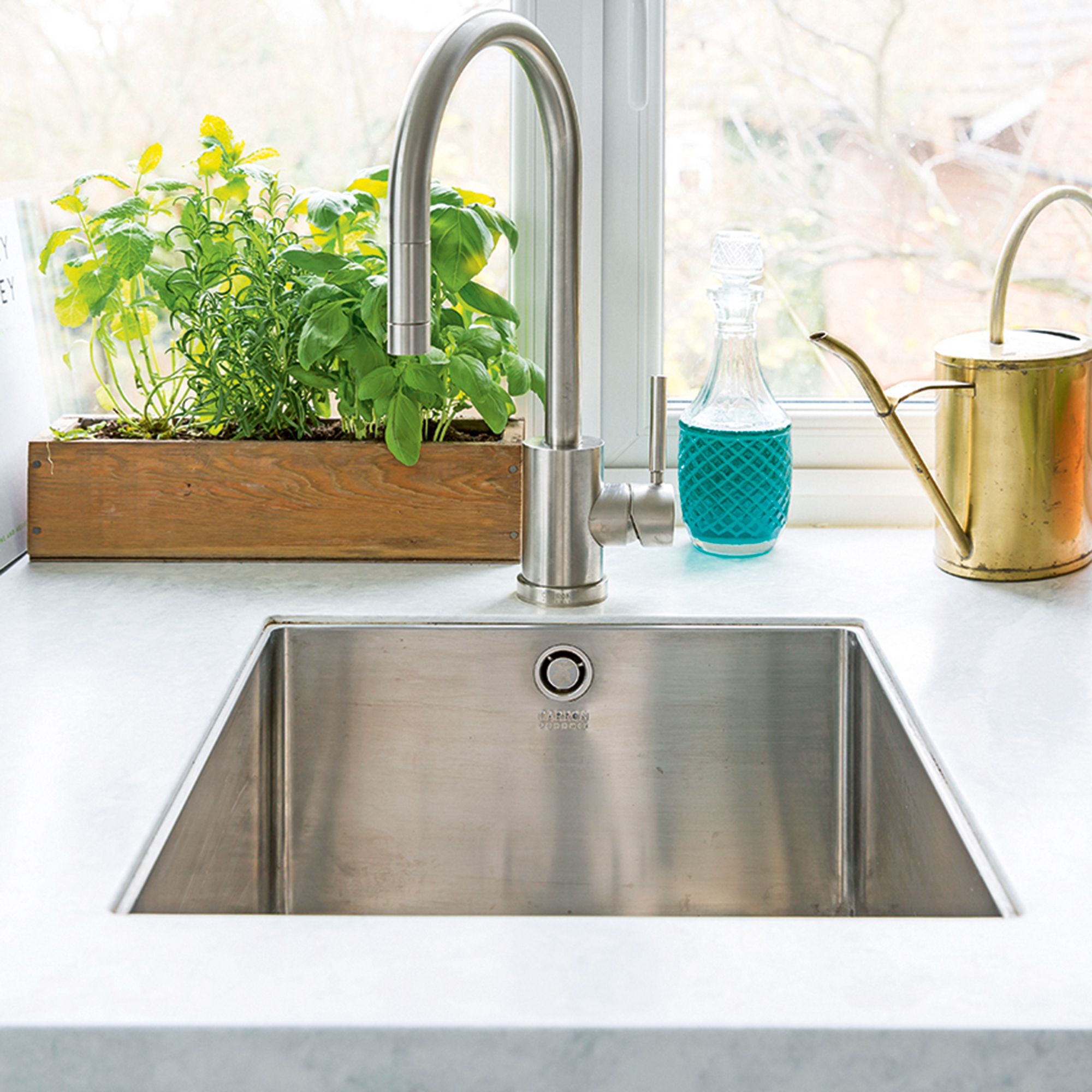
A plunger is a rubber suction cup attached to a small pole that works with the power of suction to dislodge any build-up and blockages that may be releasing bad smells.
Seal the plunger over the drain and push it up and down to create pressure in the pipe that then moves water up and then back downwards unclogging from the inside.
If a plunger isn't enough to push away a smelly clog a drain snake could be the answer. Also known as a plumber's snake this gadget is a long flexible pipe or cable that is inserted into kitchen or bathroom sinks. It then uncurls and twists inside the pipe using a handle at one end and then dislodges any build-up or blockages.
'If you’re still suffering with a bit of a stretch, try using a drain snake to remove anything that might be stuck and stinky, or purchase a specially formulated drain cleaner,' says Amanda Lewis, marketing director at Elbow Grease®.
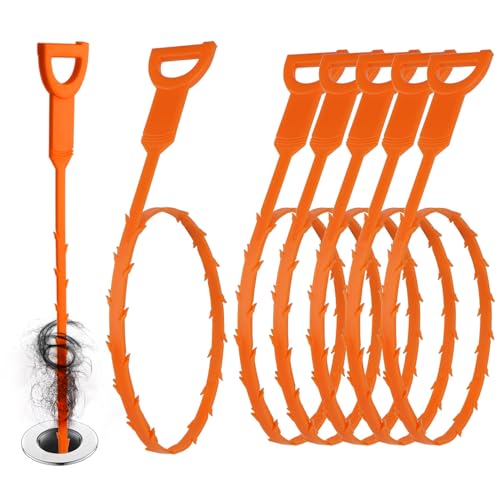
These drain snakes are reusable, but with this pack of 6 you'll always have a clean one on hand.
Reach for specialist chemicals
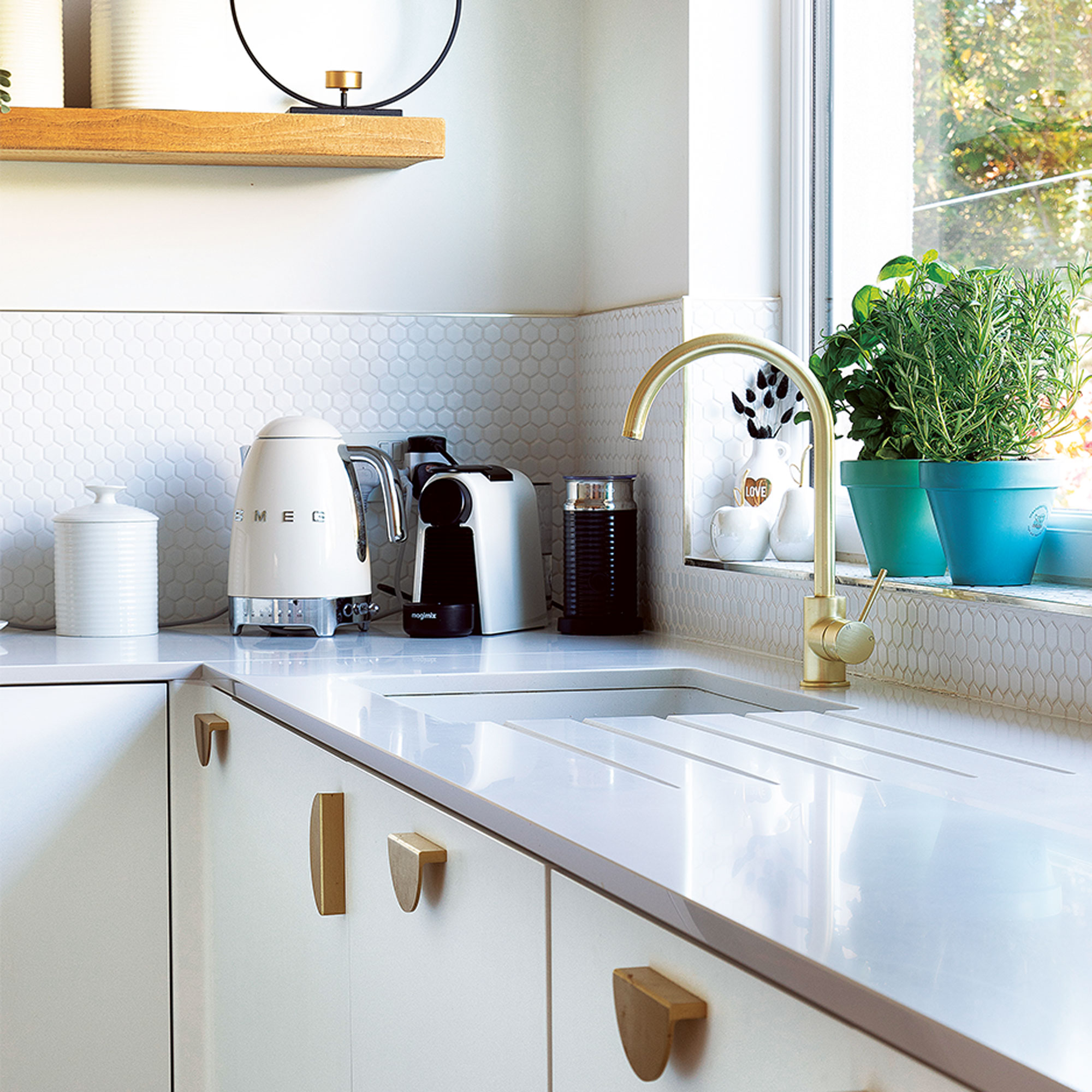
Our preferred method when knowing how to fix smelly drains is a natural one. But sometimes needs must and if the smell is coming from a stubborn blockage it may be necessary for a stronger solution.
There are many effective brands on the market, but when looking for the best cleaning products for drains always read the manufactures guide book and product label instructions before purchasing and using.
Look for formulations that are safe for all plumbing and septic tanks. Use protective gloves and if necessary eye-where. Lastly, keep children and pets out of the room whilst using harsh chemicals.
'Do not mix a drain unblockers with other cleaning chemicals or acids, as dangerous gases may be released. Use only as directed,' says Amanda.
Avoid pouring stinky culprits down the sink
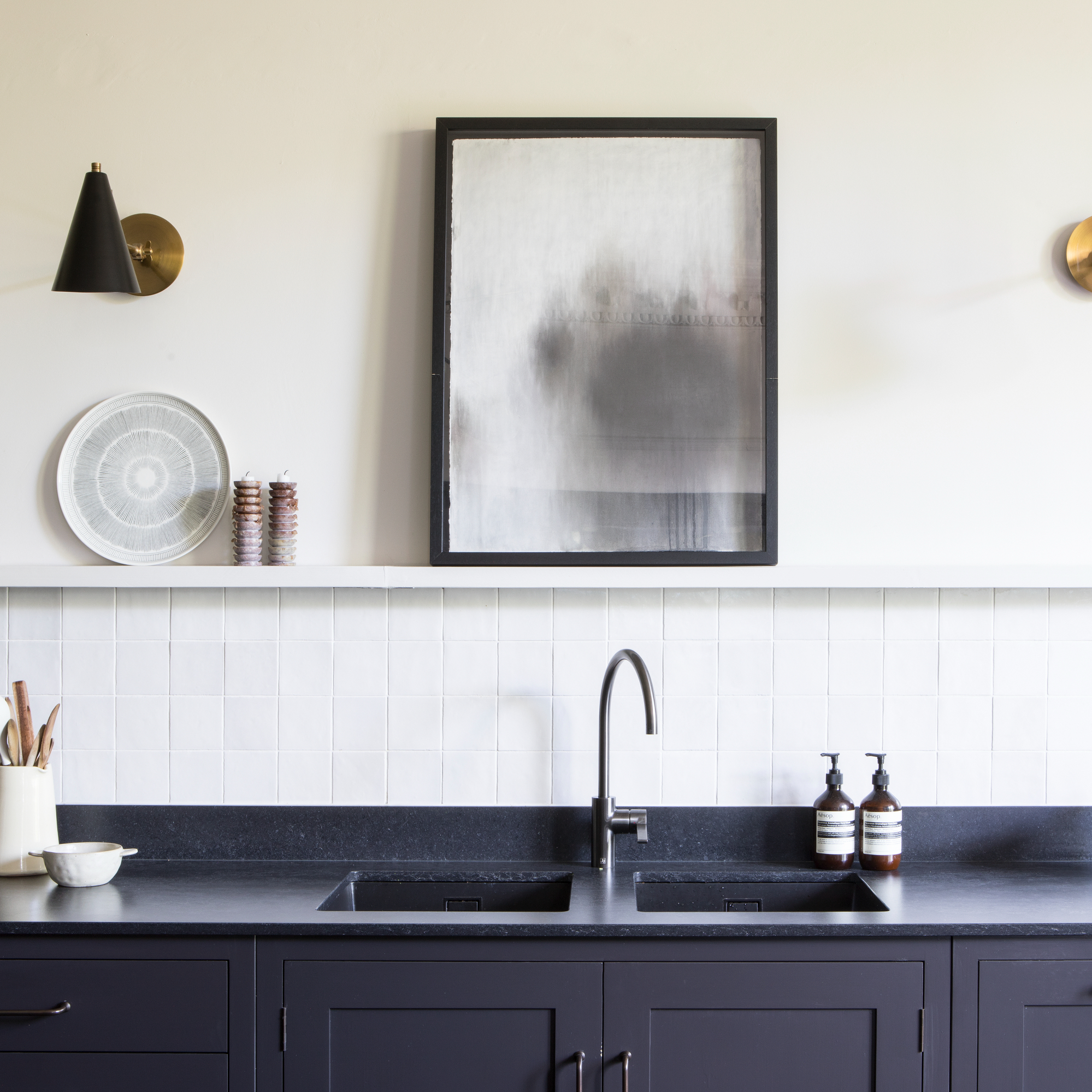
In order to keep your drains constantly odourless it's important to avoid pouring blockage culprits down the sink in the first place.
Never pour grease, fat and oil down the drain as it will not only cause blockages in your own home but can cause havoc in community sewers by contributing to build ups known as 'fatbergs'. These are rock-like matters consisting of fat, grease and un-flushable items that then clog sewage systems, leading to blockages, backups, and sewage overflows.
'Avoid pouring grease, fat and oil down the drain. Grease actually solidifies as it cools, which causes blockages. These blockages then trap food particles and other pieces of debris, creating the ideal breeding ground for bacteria and causing nasty smells,' says professional cleaner Jess.
'Pour grease, oil and fat into a bowl, wait for it to cool (or put it in the fridge) and solidify, before throwing it into the rubbish bin rather than down the drain.'
Keep a drain cleaning schedule
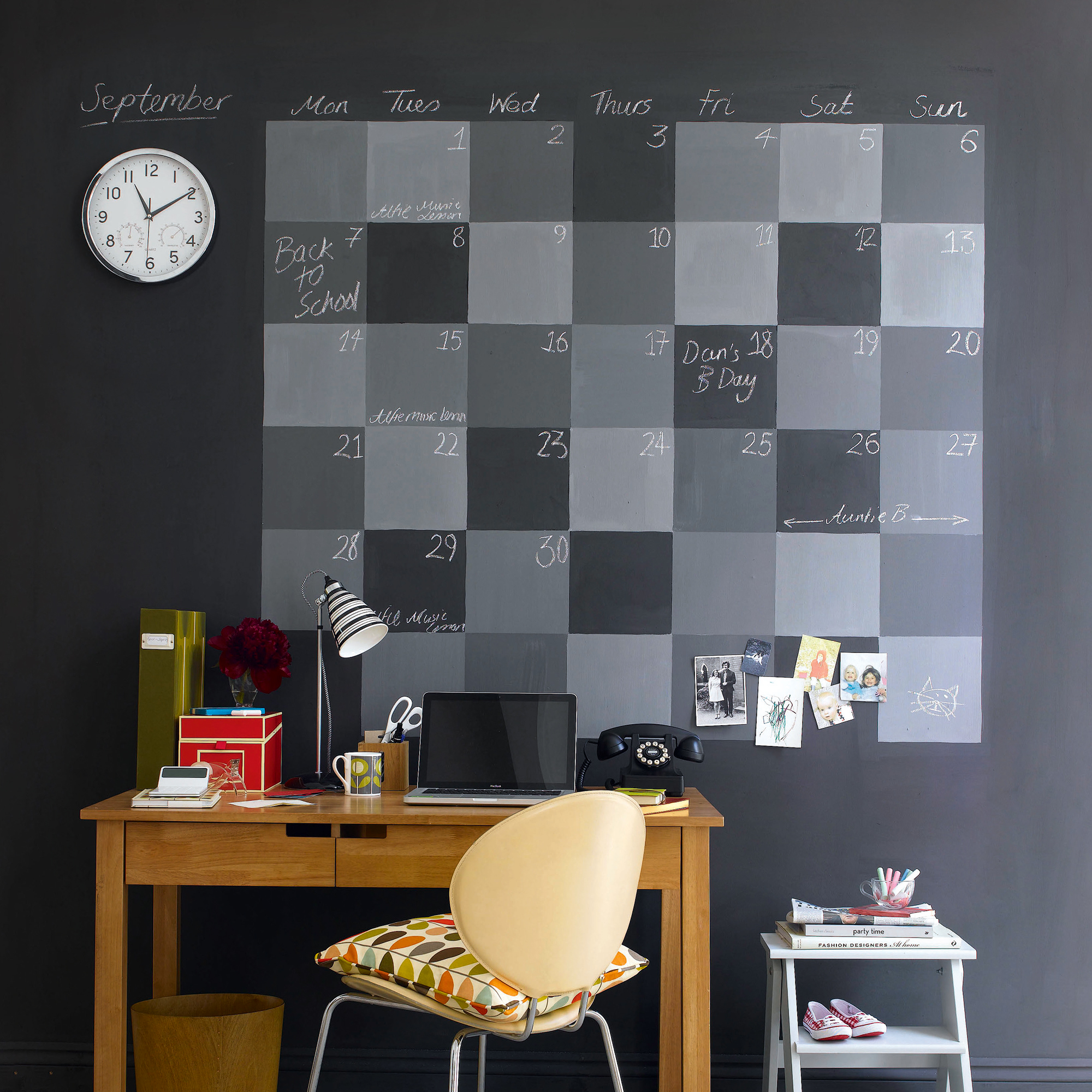
Whether you are about to carefully clean a granite sink or you know how to clean your kitchen in 15 minutes, incorporating a drain flush into your cleaning regime will prevent smells from building up in the first place.
'You should be regularly flushing your drains with hot water, as well as using the baking soda and vinegar method at least once a month. This will help to prevent any major build-up of debris and blockage, and therefore prevent any smells,' explains Jess.
'If you keep on top of your drains and flush them through with boiling water once a week, and drain cleaner from time to time, this will help to rid blockages and avoid those unpleasant smells,' confirms Amanda.
Install plug strainers

Ask any expert their best-ever cleaning tips and we bet your marigolds the answers will be ways that help prevent the chores of cleaning in the first place.
With this in mind (if you don't already have one) a plug-hole strainer is an inexpensive yet hero kitchen gadget to buy.
'If your plug hole doesn't have a strainer, then installing one is a good idea as it will prevent big chunks of food and other debris from going down into the drain. In a bathroom, it'll also prevent masses of hair from going down into the drain', says Jess.
Following the above information will ensure your kitchen drains are kept clear and super fresh for all time.
These methods of how to fix smelly drains can be used in the bathroom too. Preventing a clog in the first place is key to knowing how to fix a clogged bathroom sink.
FAQs
What causes smelly drains?
Food remnants, grease, oil, soap scum and hair can create a build-up of decomposing debris known as biofilm create smells in your drains. This is due to waste breaking down and forming bacteria which then releases foul smelling byproducts into the air.
What's the best product to get rid of smelly drains?
A natural mixture of baking soda and white vinegar will react and expand in the drain absorbing odour. Acid in vinegar will help to break down stubborn particles that can then be flushed away with hot water to remove the source.
Get the Ideal Home Newsletter
Sign up to our newsletter for style and decor inspiration, house makeovers, project advice and more.
Rachel Homer has been in the interiors publishing industry for over 15 years. Starting as a Style Assistant on Inspirations Magazine, she has since worked for some of the UK’s leading interiors magazines and websites. After starting a family, she moved from being a content editor at Idealhome.co.uk to be a digital freelancer and hasn’t looked back.
-
 Will a conservatory add value to your home and how can you maximise it?
Will a conservatory add value to your home and how can you maximise it?This is what the pros say
By Amy Reeves
-
 I’ve been looking for a new signature scent for my home and The White Company's new fragrance is the exact summer holiday smell I needed
I’ve been looking for a new signature scent for my home and The White Company's new fragrance is the exact summer holiday smell I neededSantorini smells fresh, summery and sophisticated
By Kezia Reynolds
-
 How to remove algae from garden walls in five steps – and the cleaning product experts rave about for tackling it fast
How to remove algae from garden walls in five steps – and the cleaning product experts rave about for tackling it fastExperts share their top tips for getting garden walls algae-free
By Katie Sims
